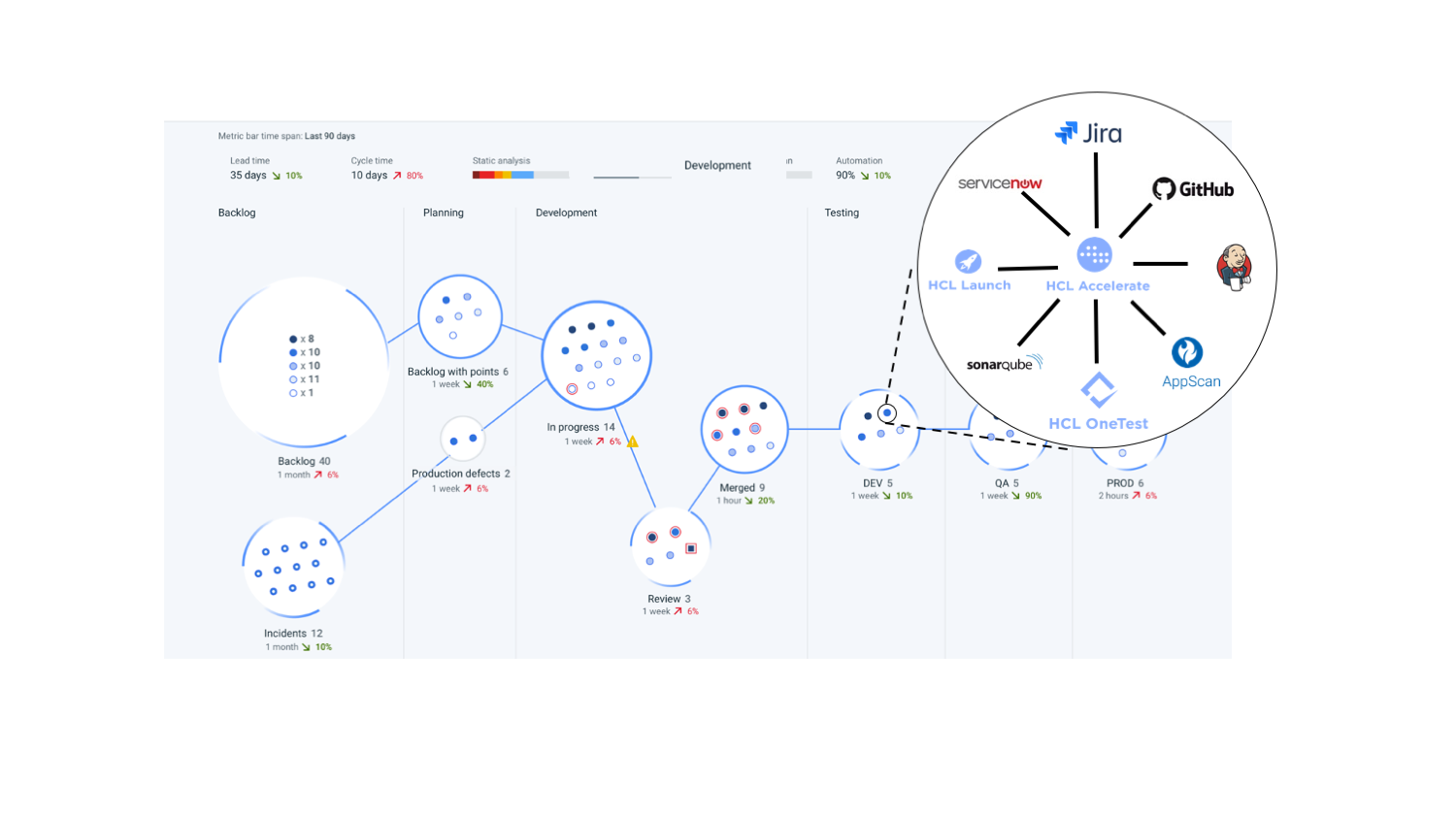HCL Software has launched a DevOps practice and portfolio along with three updates to HCL tools.
Version 2.0 of HCL Accelerate 2.0 adds support for policy management and out-of-the-box reports to the value stream management platform, while version 7.1 of HCL Launch automates the application of corporate governance rules to the continuous delivery platform.
HCL Software has also updated HCL OneTest 10.1 to include OneTest Server, a wizard-driven test authoring environment and OneTest Data, a data fabrication tool that ensures the right data is on-hand for testing, along with support for Kubernetes and Red Hat OpenShift application development and deployment platform.
Finally, HCL Software is making available HCL Software DevOps Power Pack, which bundles HCL Accelerate, HCL Launch and HCL OneTest, along with 40 hours of services for installation, configuration and team adoption into a single offering.
Steve Boone, head of product management for HCL Software DevOps, said the goal is to make sure IT organizations that adopt HCL tools as part of a DevOps initiative are successful.
Boone said HCL Software is focused on extending the value of investments made in continuous integration (CI) platforms. Most organizations today have multiple CI platforms installed, some of which even come from different vendors. The HCL Software portfolio enables DevOps teams to scale deployment processes across multiple platforms along with tools such as value stream management software to better manage DevOps processes.

In contrast, CI/CD platform providers often offer many of the same capabilities, but those offerings are optimized for a specific CI/CD platform.
The HCL Software portfolio of DevOps tools traces its lineage back to IBM, which sold its AppScan, BigFix and Lotus Notes technologies to HCL at the end of 2018. Since then the company has expanded its portfolio to include DevOps tools and services but it is no longer committed to developing those offerings in lock-step with IBM. As a result, IT organizations should expect to see more frequent updates, Boone said.
In the meantime, interest in DevOps tools and processes has increased in the wake of the COVID-19 pandemic, as organizations accelerate multiple digital business transformation initiatives, he said. As part of those efforts, those same organizations are starting to appreciate the need for DevOps tools that go beyond providing basic CI capabilities.
Different organizations are, of course, going to achieve a level of DevOps maturity at varying rates. It’s not uncommon for different teams within the same organization to differ widely in terms of DevOps maturity. Rather than simply providing software, Boone said HCL Software is committed to providing the expertise in the form of services that enable organizations to maximize the potential of any DevOps investment.
It’s not clear to what degree organizations will want IT vendors to include professional services engagements with the acquisition of software. However, the less proficient any organization is in terms of their DevOps processes, the more valuable those services generally become.





